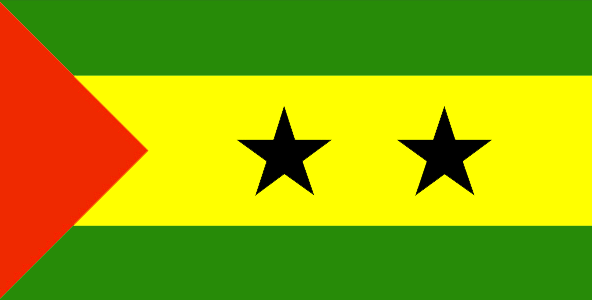Democratic Republic of São Tomé and Príncipe
Background
Sao Tome and Principe is a multiparty and democratic system. In the 2014 legislative elections, the then opposition party Independent Democratic Action ADI (Acção Democrática Independente) won 33 of the 55 seats of the parliament. The same party won the 2016 presidential elections after the incumbent president from the Movement for the Liberation of São Tomé and Principe – Social Democratic Party (Movimento de Libertação de São Tomé e Príncipe – Partido Social Democrat) withdrew from the race, citing electoral fraud, ending the cohabitation that prevailed since 2014. However, international observers considered the election free and fair. The political environment is likely to be conducive for the ratification of the Malabo Protocol since it is the first time, from the inception of multi-party system 25 years ago, that the country is not governed in cohabitation of a president and a government coming from two different political parties.
Treaty ratification Process
Under the Constitution of the Democratic Republic of São Tomé and Príncipe, international treaties are negotiated and signed by the Government, except for treaties related to defence and security, which must be negotiated in concert with the President of the Republic. The President also holds the power to ratify international instruments after they have been duly approved by the National Assembly. In particular, international instruments that seek to create international organizations or that define crimes, such as the Malabo Protocol, require the prior approval of the National Assembly before they may be ratified. Once a treaty is approved and sent to the President for ratification, the President may ask the Constitutional Court to review its conformity with the Constitution. If the court determines that the treaty does not conform with the Constitution, the President must veto it and return it to the National Assembly. However, a non-conforming treaty may still be ratified if, upon return, the National Assembly approves the treaty by a majority of two-thirds of the members present, provided that the total vote exceeds an absolute majority of the Deputies in office. Duly ratified and published treaties are binding in the São Toméan legal order and their authority is hierarchically under the Constitution but above infra-constitutional legislation.
State of legislation on International and transnational crimes
São Tomé and Príncipe has criminalises the crimes of genocide, war crimes, and some categories of crimes against humanity such as torture and cruel and inhuman treatment. A review of these penal code provisions indicates that they do not conform to the definitions laid out in the Rome Statute or the Malabo Protocol. In addition, the penal code criminalizes some transnational crimes covered by the Malabo Protocol, such as recruitment of mercenaries and corruption. São Tomé and Príncipe has no history of the commission of international crimes. It is classified as a free country in all of the Freedom House reports since 1999.
Human Rights treaty signing and ratification trends
São Tomé and Príncipe has ratified most of the UN human rights instruments, but has only ratified the ACHPR at AU level. It takes the country an average of 120 months to ratify/accede to UN treaties and it has directly accessioned to the ACHPR.[1] Eight years have passed since São Tomé and Príncipe signed the Protocol Establishing the African Court on Human and People’s Rights.
AU Judicial bodies membership
[1] See Annex: Treaty signing and ratification trends, calculation chart, São Tomé and Príncipe.

